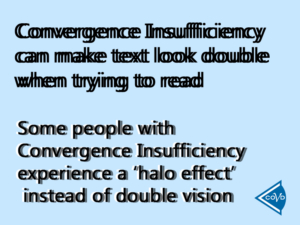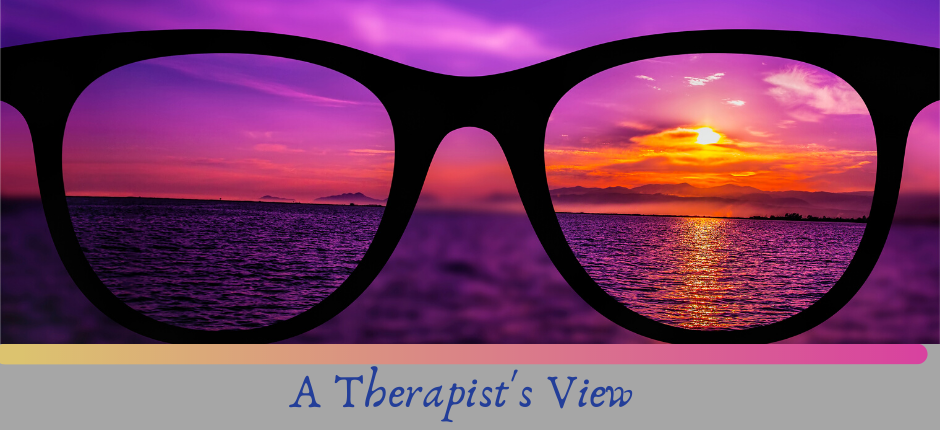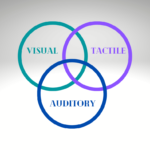GROWING UP WITH CONVERGENCE INSUFFICIENCY
Growing up with Convergence Insufficiency (CI) I struggled with vision issues through school, college & work…
At 15 I got my first pair of glasses, and even though I was able to see things more clearly far away it was still difficult for me to read or focus on things close up. I suffered from headaches, tired eyes and lack of concentration. Frequently I would have to re-read something twice before I would be able to comprehend what it was saying. By college I hated reading because I knew I would need to take something for a migraine; I had to focus on what the words were to the point I lost the story/meaning to them. That made me sad because I love books!
Two years ago when I was finally diagnosed with convergence insufficiency, the problems I’d been struggling with (even after getting glasses) finally made sense.
Vision is so much more than just “20/20”; vision is the ability to obtain meaning and understanding from what we see with our eyes, something that I had lost over the years.

Image provided by COVD.org
In order to not see double or have a ‘halo effect’, a person with convergence insufficiency must use extra effort to make the eyes turn in to bring the images into alignment. This extra effort can lead to symptoms such as eye strain, headaches, blurred or double vision. Who would want to read or do close work when those are the symptoms that come with it? Not me!
Ten years after getting my first pair of glasses I started vision therapy.
My progress is going well, but slower than most with this diagnosis as finding time to do my personal therapy among our scheduled patients can sometimes be difficult. I am excited to give a full update when I have fully completed my sessions, but as for now the progress I have made has helped a great deal with my migraines and I am starting to read for fun again!
I frequently wonder if my optometrist growing up would have checked for more than if I could clear a chart 20 feet away with a few tests on how my eyes worked together as a team and recommended vision therapy would I have done better or even enjoyed school? 1 in 5 children will have vision related learning issue/s, CI is a common one.




